The bustling aisles of a grocery store offer rows upon rows of food to choose from. In this space, the freedom of choice appears endless, though insight into where and how exactly a product originates may not be as readily available. Peering beyond the confines of the supermarket’s shelves can reveal the scope of this journey, all the way from pollination to plate.
Across the globe, a little over one-third of food crops and plants are dependent on pollinators for reproduction, according to the U.S. Department of Agriculture. It’s estimated that approximately one out of every three bites of food individuals consume exist because of such animals and insects — from birds to butterflies, bats and especially bees.
“A large portion of our crops are pollinated by insect pollinators, whether it’s watermelons, cantaloupes, cucumbers, different berry crops and so on,” said Timothy Coolong, a professor in the University of Georgia’s department of horticulture and the program coordinator of Sustainable Agriculture Research and Education. “So not only are they critical for environmental health, but we will not have a crop to sell if we don’t have pollinators.”
Despite the significant impact they have on food production, the landscape and its inhabitants, these insects often go unnoticed. UGA Honey Bee Program lab manager Jennifer Berry attributes this disparity not to ignorance, but simply to a lack of public knowledge when it comes to “how important they are for pollination.”
However, through local beekeepers’ involvement within and across their communities, this knowledge rift is slowly closing. From raising small bee colonies for farmers to purchase in the spring to selling honey at markets, over the past 18 years, Abby’s Apiary has contributed to bridging the gap in food trust and transparency.
Why It’s Newsworthy: Pollinators, such as bees, contribute to the various steps of food production and crop reproduction. Shedding light on this will increase public knowledge of the roles bees and beekeepers hold in agriculture.
“[Bees] are one of the very few creatures you can keep that you don’t have to feed,” said David Hutchinson, founder of Abby’s Apiary. “They actually feed you.”
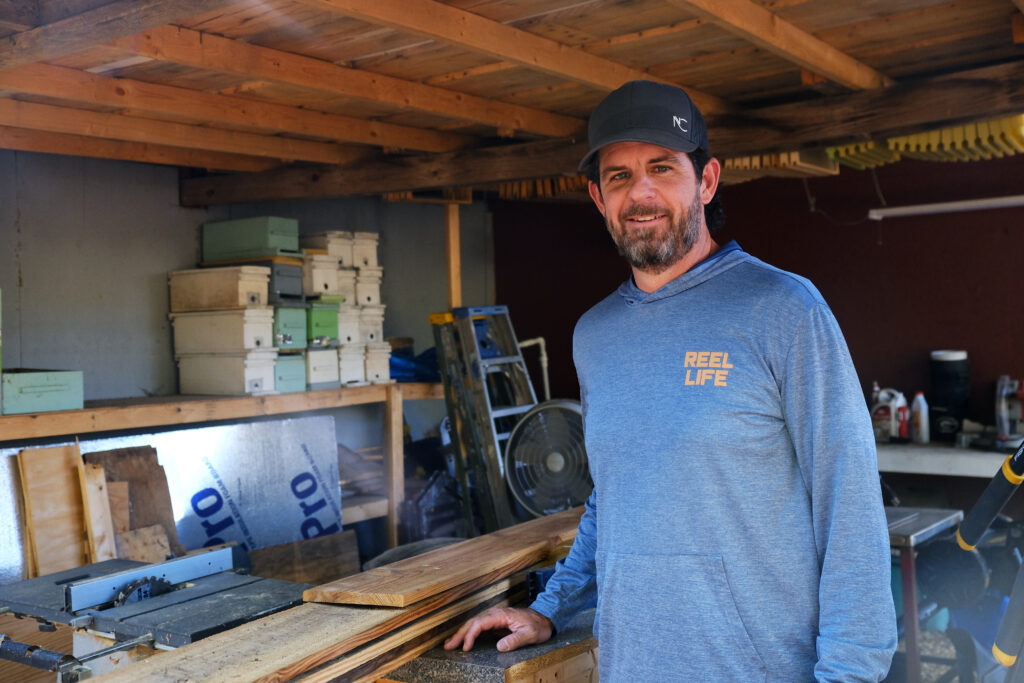
Hutchinson was first introduced to beekeeping when he was a freshman in college. He lived with his great uncle at the time, who laid the foundation for his knowledge and interest in the activity. Though Hutchinson took time away from it for several years, after his first child was born, he decided to revive his beekeeping endeavors, return to his very first honeybee hives and launch Abby’s Apiary, named after his daughter.
He bases his management techniques on “observation in nature,” structuring his eight-frame bee boxes after beehives from wild colonies. He builds these boxes by hand with reused old wood and paint from his friend’s business, and he treats his honeybees and honey without chemicals or pesticides.
For Hutchinson, beekeeping is restorative and recentering.
“I just enjoy beekeeping,” Hutchinson said. “Thankfully, the business side takes care of itself, because there are enough people out there [who] want local honey.”
Abby’s Apiary regularly participates in the Oconee Farmers Market each year by selling honey, and the demand for this versatile condiment is evident. In the Southeast, Georgia is one of the top producers of honey, bringing nearly $9 million into the economy, according to USDA’s 2022 Honey Production Survey.
Along with Georgia’s substantial honey production, an interest in beekeeping persists. When Hutchinson sells his small colonies each spring, he looks forward to meeting customers, new and old, ranging from gardeners, to farmers and newcomers just beginning to familiarize themselves with backyard beekeeping. As opposed to previous years, “among the general public, there’s a lot more attention paid now to providing pollinators habitats,” Coolong notes.
“There’s been a real blossoming of beekeeping, and I love that, being a beekeeper myself,” Berry said. “The only problem I see is, when we have a lot of people doing something, is there going to be an impact?”
What’s Working
-
Why Farmers in Zimbabwe Are Shifting to Bees
Farmers in Zimbabwe are diversifying their income with beekeeping to offset financial losses from crops underperforming during increasingly severe droughts.
According to Berry, the rise of amateur beekeeping that she, Coolong and Hutchinson note has come in response to colony collapse disorder. This phenomenon occurs when much of a colony’s worker bee population disappears, leaving behind the queen and little else. Berry explains how the disorder can be attributed to viruses brought about by parasitic, invasive mites. A notable instance of this observance took place in 2006 and 2007, affecting bee colonies in over 20 U.S. states. Since then, colony collapse disorder’s impact on colony loss has decreased, though the issue of colony loss remains.
As per Berry, the solution to this disorder is reflective of “the state of [the] industry” at large, ultimately lying in the hands of bigger commercial operations with tens of thousands of colonies. However, this does not mean that independent and amateur beekeepers have no impact on their communities.

“I think one of the challenges with beekeeping is just staying knowledgeable as to what is happening with new diseases or pests,” Hutchinson said. “Management techniques are evolving, [but] if you just say ‘this is the way I’m going to do it’ and you do it that way forever, you may not succeed as a beekeeper.”
When it comes to colony loss, he expresses the importance of continually remaining “connected to research” and the beekeeping community, both of which have helped him prevent infestations of pests and sustain his bees’ wellbeing.
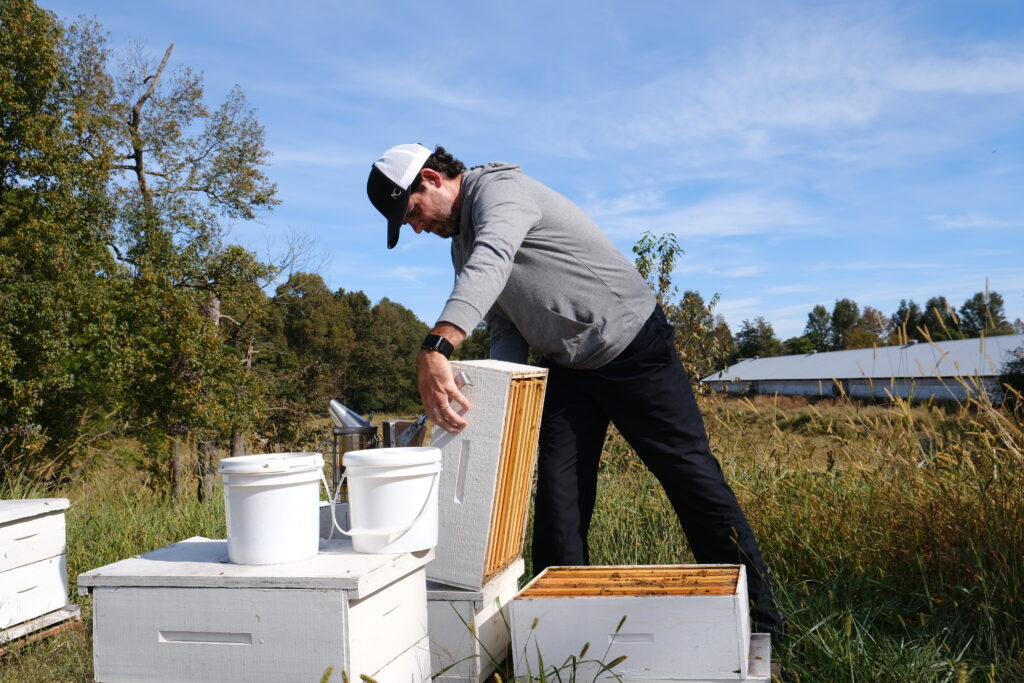
Further, Berry suggests that planting trees is the best thing individuals — beekeepers and otherwise — can do to help pollinators, in addition to educating themselves on the process and bees’ irreplaceable role within food production.
“Every time I walk into a grocery store and I see all of that fruit and all of those vegetables, I’m like, ‘thank God for bees,’” Berry said. “They are responsible for the nutritious food that we eat and the color in our diet.”
Skyli Alvarez and Melanie Velasquez are seniors majoring in journalism at the University of Georgia.


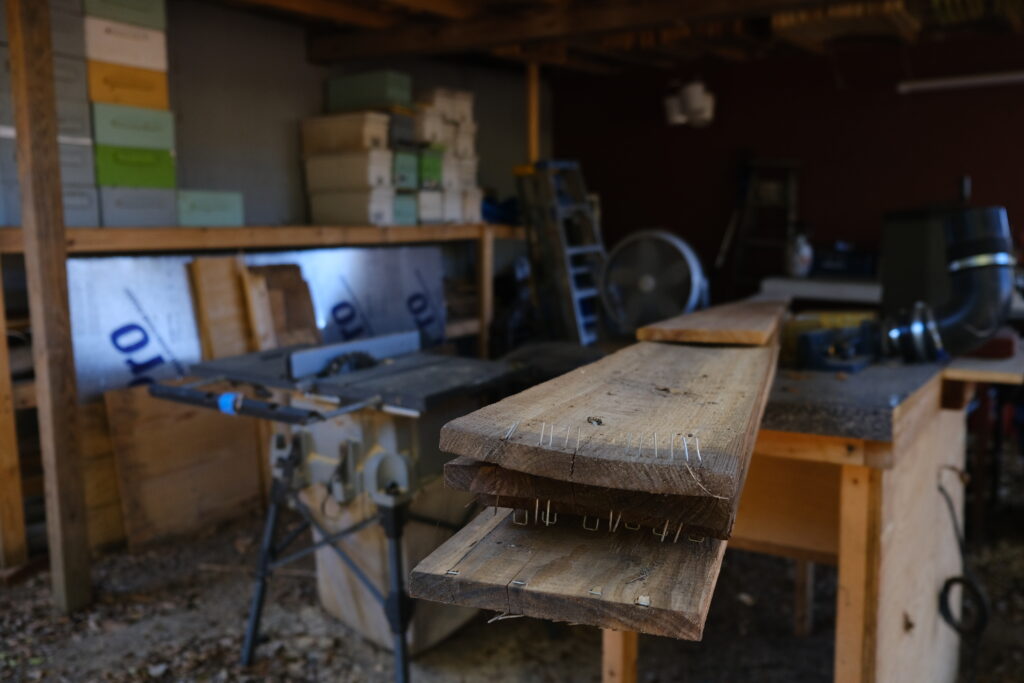
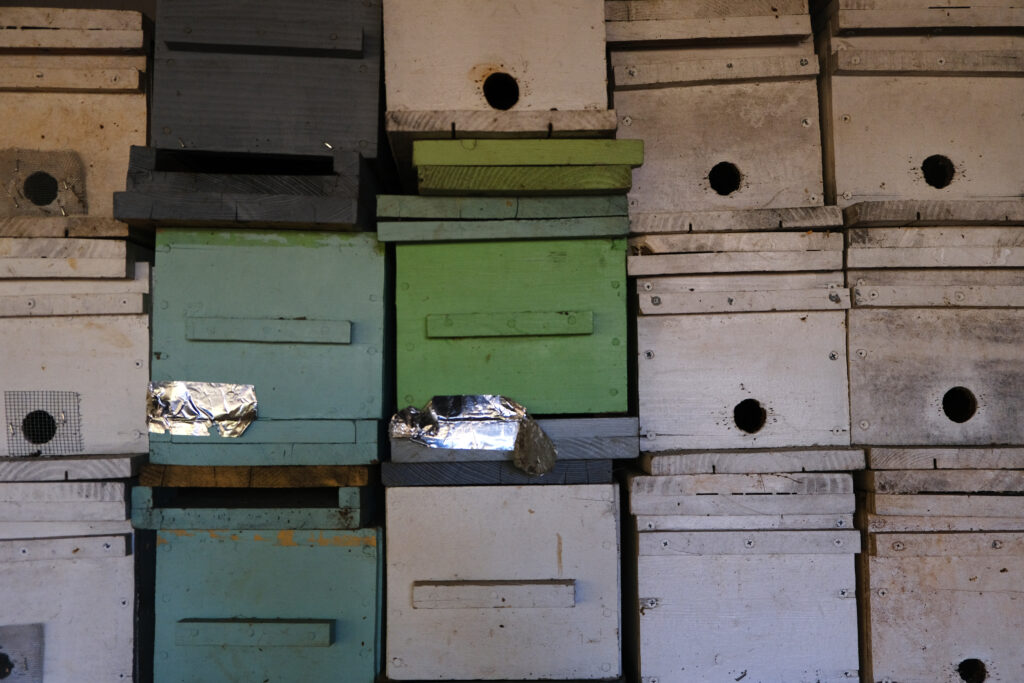
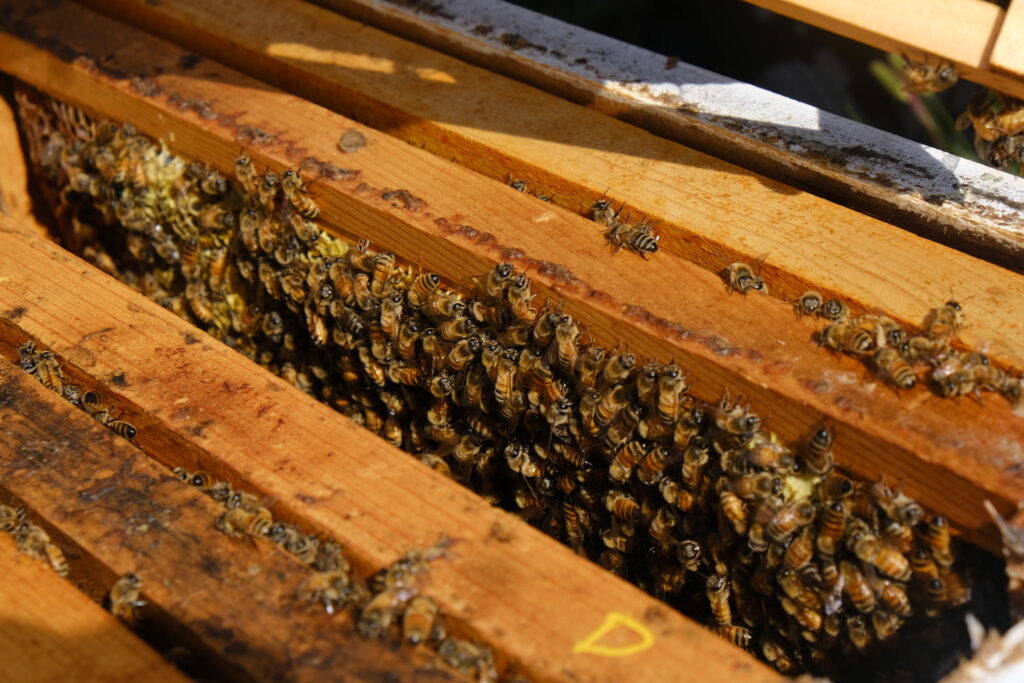







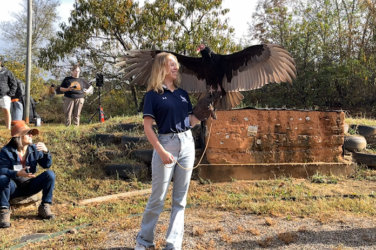

Show Comments (3)